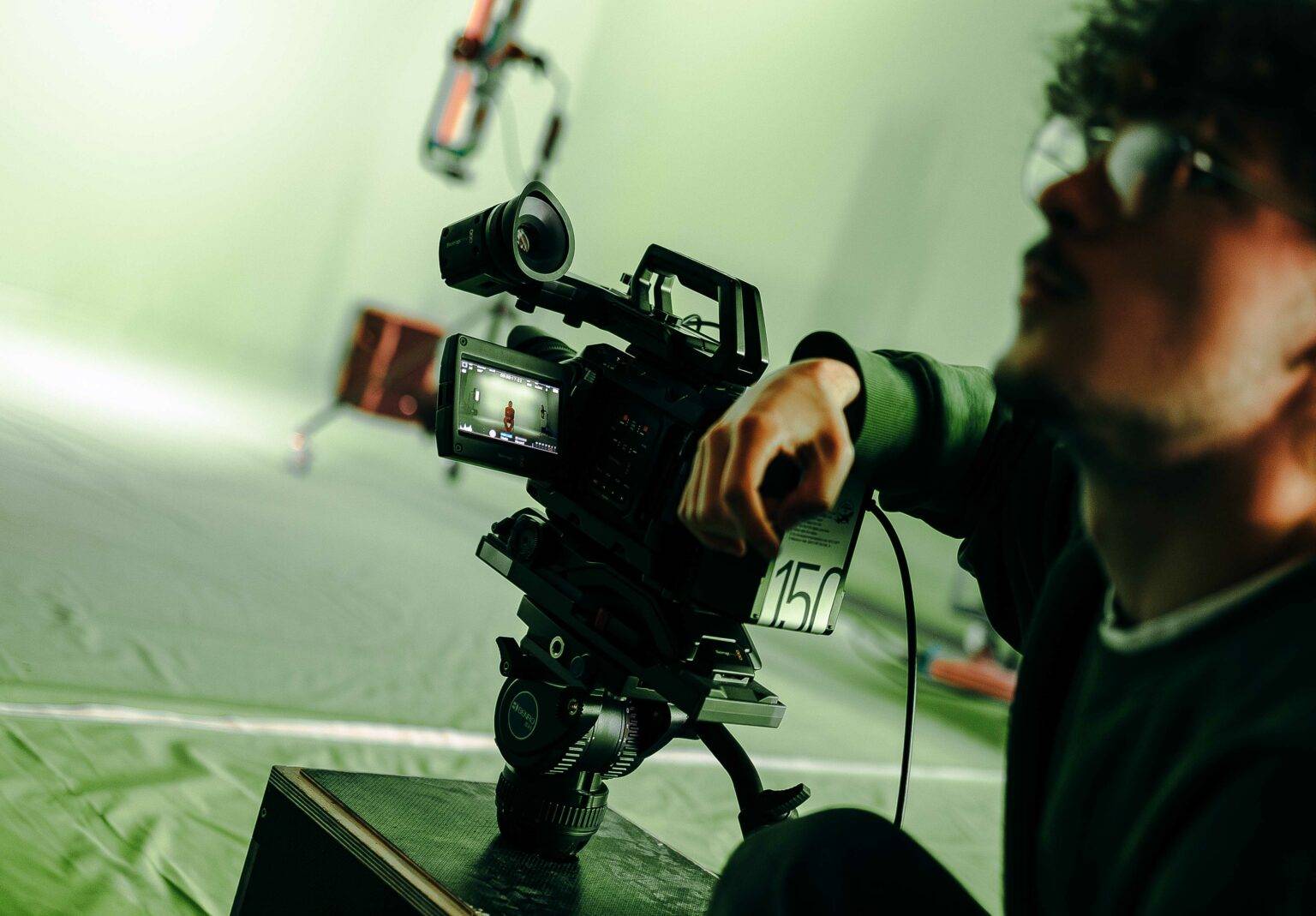What types of training are available in cinema?
The cinema and audiovisual industries are fascinating because of their ability to tell stories, convey emotions and captivate audiences. These constantly evolving industries require skilled, creative and versatile professionals to meet the artistic and technical challenges they present. To meet these demands, a wide range of training courses are available, offering a broad range of skills adapted to each stage of film and audiovisual production.

- thème Cinema
- date 12.12.2024
The film and audiovisual sector offers a variety of training courses to develop the technical, artistic and professional skills needed to succeed in this creative field. Among the courses available, the CinéCréatis Cinema and Audiovisual Professional Cycle stands out for its comprehensive and innovative approach.
Film and audiovisual training structured over three years
The CinéCréatis curriculum is organised over three years and focuses on three main areas:
- Technical and technological aspects: students acquire a mastery of the tools and techniques used in film and audiovisual production.
- Artistic practice: the emphasis is on creativity, aesthetics and storytelling.
- Introduction to the world of work: students are immersed in practical projects, preparing them for the world of work.
This programme trains professionals who are both versatile and experts in their field, and leads to the RNCP37089 “Audiovisual and Cinematographic Production Designer” qualification at level 6 (Bac 3/4). France Compétences is currently examining a new application for registration of the ‘Audiovisual and Film Production Designer-Director’ qualification.
Film and audiovisual training objectives
The aims of this course are to :
- Acquire a cinematographic culture and an understanding of the artistic issues involved in a production.
- Develop technical versatility, covering all stages of audiovisual design.
- Go deeper into a specific field, such as Production, Image or Post-production.
- Explore different audiovisual and cinematographic genres and formats.
- Reinforce the soft skills essential for teamwork and project management.
Detailed film and audiovisual training programme
Year 1: Laying the foundations
The first year provides a solid grounding in creation and techniques, through a variety of workshops (sound, image, directing, scriptwriting, etc.).
- Technical skills: Sound and image technologies, editing studio.
- Projects and issues: directing actors, production management, scriptwriting.
- Professional practice: Image, editing and sound workshops.
- Projects: Mashup, slide show, very short.
In-depth teaching:
- Audiovisual culture and methodology: Image analysis, digital technology, graphic design, production methodology.
- Thematic workshops: Narration, directing, oral expression, English, economic culture.
- Specific practices: Creative studio, sound and image technology, editing.
Year 2: Further study and practice
In the second year, students immerse themselves in their future specialisation (choose between Production, Image or Postproduction) and carry out demanding collaborative projects.
- Developing expertise: production management, VFX, colour grading, sound design.
- Team projects: Collaborative creation with high technical stakes.
- Core courses: Film analysis, art direction, production methodology.
Specific teaching by major :
- Production: Business management, financing, marketing, production management.
- Post-production: VFX, editing, graphic creation/motion design.
- Image: Image/lighting studio, colourimetry, sound environment.
Major projects :
- À La Manière De (ALMD)
- New writing (documentary or hybrid fiction-documentary)
- Graduation film prepared for the third year.
Year 3: Mastering and preparing for professionalisation
The final year focuses on the production of a short film for the end of the course, while continuing to develop the chosen specialisation.
- Production for a client: Creation of advertisements for real clients.
- Personal project and presentation: Individual demo tape and definition of professional project.
Advanced teaching by major :
- Production: Management, distribution, DTP, production management.
- Post-production: VFX/compositing, editing, colour grading, sound, creative studio.
- Image: Advanced studio, directing, digital image.
Key projects :
- Advertising.
- New writing (documentary or hybrid fiction-documentary)
- Graduation film, reflecting the skills and knowledge acquired.
Recognised training
The CinéCréatis professional course offers a comprehensive and innovative education, enabling students to work in the film and audiovisual world with official recognition (level 6 qualification registered with the RNCP).
By choosing this course, future professionals benefit from comprehensive preparation, combining theory, practice and professional experience. CinéCréatis opens the door to a successful career in this dynamic sector.
Photo : Maxime Grégoire